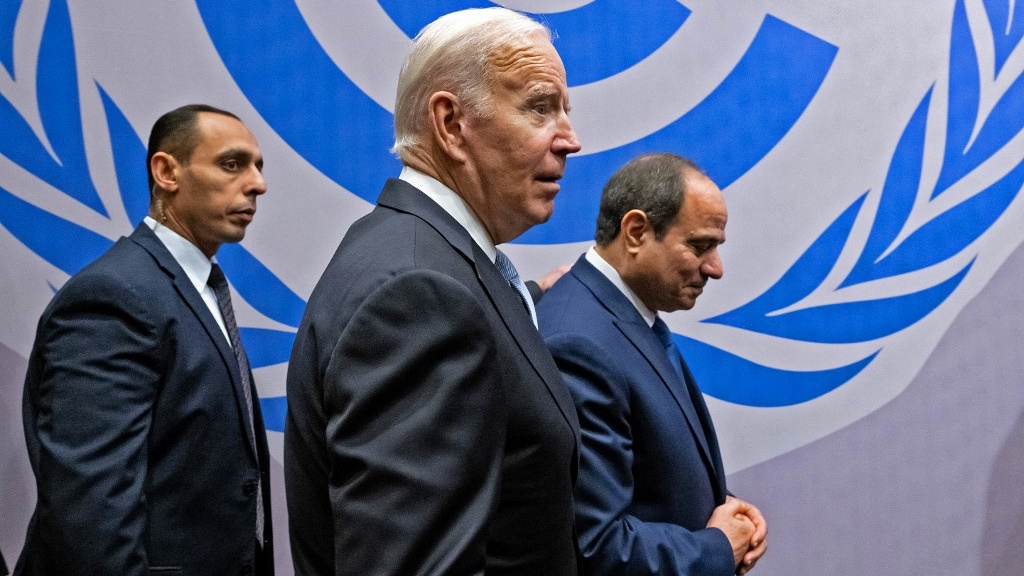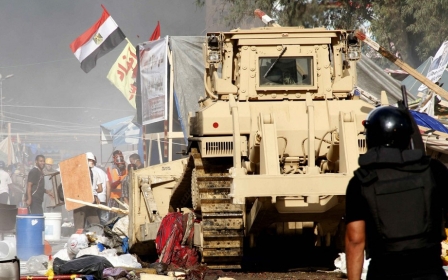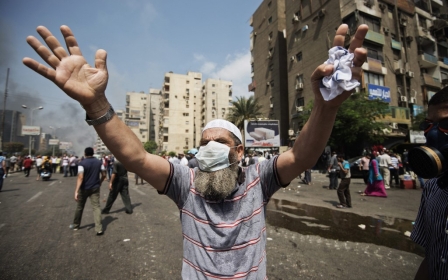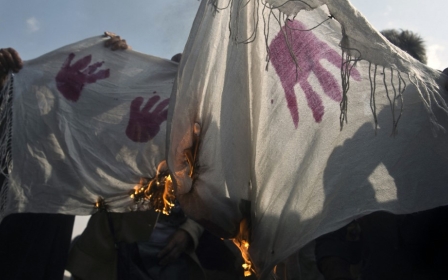Rabaa massacre proved the West will never support Egyptian democracy

August 2023 marks the 10th anniversary of the worst massacre in Egypt’s history. A decade ago, the Egyptian military massacred around 1,000 Egyptians in cold blood amid protests at Cairo’s Rabaa Square. The intent was to create a new era of repression and brutality that would solidify General Abdel Fattah el-Sisi’s upcoming rule.
Those Egyptians had gathered in Cairo in support of Mohamed Morsi, the first and only democratically elected president in the country’s history. I was part of that administration, and I am comfortable saying that while we made mistakes in office, none approach the criminality, corruption and outright brutality that were a feature of the preceding 60 years or the ensuing 10.
Democracy is hard work. Egypt’s brief experiment in democracy wasn’t perfect, or even necessarily that good. But democracy is achieved through fitful progress, rather than in one fell swoop.
Egypt deserved support for its experiment in democracy. But that was clearly not the position held by the West in general, and the United States in particular. Western officials talk a great deal about democracy, but their promise of democracy promotion only holds if you live in a place where democracy is a means of installing a regime that supports western interests.
If you are in Egypt or Pakistan, your democracy is distinctly less preferred than good old-fashioned autocrats. For the people of those countries, the West has a different message: you don’t deserve democracy. You don’t get to try. You don’t get to fail and try again. You deserve brutal, repressive, corrupt and stunting autocracy. And the West will call it “stability”.
New MEE newsletter: Jerusalem Dispatch
Sign up to get the latest insights and analysis on Israel-Palestine, alongside Turkey Unpacked and other MEE newsletters
That is exactly what the US and European Union supported and promoted in Egypt. Former US President Barack Obama steadfastly refused to meet Morsi during his year in office, but readily met Sisi within a year of the latter killing and imprisoning thousands of Egyptians.
American policy in Egypt under President Joe Biden, who claims to be attempting to strengthen democracy and convened a summit to that effect, has been no different from that of his predecessor, Donald Trump, who at least had the decency to tell it like it is.
Supporting dictators
And this western support of autocracy is not merely a discursive exercise: it comes with billions of dollars in funding, military aid and credibility on the world stage.
Americans have been feeling that democracy is under attack in their own country. But the fight for democracy in places like Egypt is of a distinctly different nature. American policy in support of dictators and authoritarians has significant impacts on the lives of millions. In Egypt, this has meant thousands of killings, imprisonments and abductions of those who voice any opposition to the regime, along with the harassment of exiles.
A child who was 10 years old when her father was imprisoned a decade ago - for nothing more than working towards a free and dignified Egypt - is now a young person of 20. A teenager who was 15 at the time of the coup is now 25. How do they view the US?
Ten years after the West welcomed the mass killing of Egyptians, the regime for which it rolled out the red carpet is a failed one
How does a woman who has been the target of sexual abuse by Sisi’s security forces feel about his American backers? How do exiles who have been forced from their homes and then rejected for asylum by countries that support Sisi view the US?
More broadly, how do Egyptians en masse view the West, given its persistent failure to support basic rights? The answer is, increasingly, with a measure of indifference, if not outright hostility.
Ten years ago, there was a broad willingness to turn over a new leaf; to forget past policies, such as western support for the Iran coup in the 1950s, or persistent support for coups in Central America. There was an idealistic belief that Egyptians could expect support for democratisation. That goodwill has disappeared.
Ten years after the West welcomed the mass killing of Egyptians, the regime for which it rolled out the red carpet is a failed one. Egypt is in ruins. The West has a chance to convert its words into actions. While no Egyptian has much hope that upcoming elections will bring meaningful change, the West can at least cease its hypocrisy and support a truly free and fair vote.
This is unlikely to happen, and Egyptians no longer have any trust in the West’s rhetoric about democracy promotion. There is a famous incident wherein a past US president could not get his idioms straight, but he recovered with good advice to any democracy-seeking developing country: you can’t fool me again.
The views expressed in this article belong to the author and do not necessarily reflect the editorial policy of Middle East Eye.
This article is available in French on Middle East Eye French edition.
Middle East Eye delivers independent and unrivalled coverage and analysis of the Middle East, North Africa and beyond. To learn more about republishing this content and the associated fees, please fill out this form. More about MEE can be found here.





